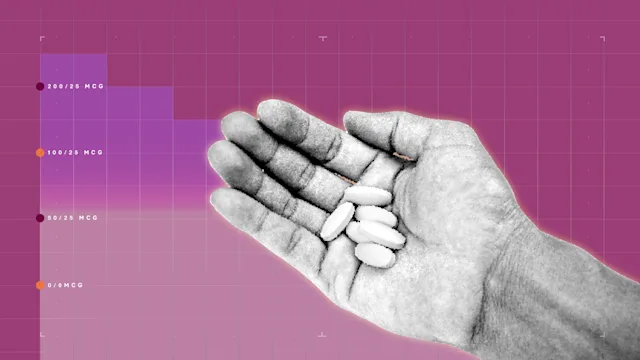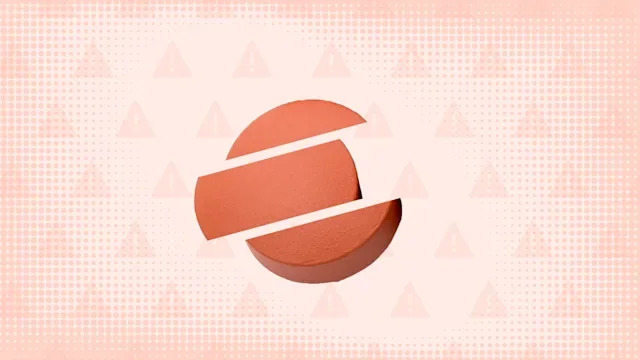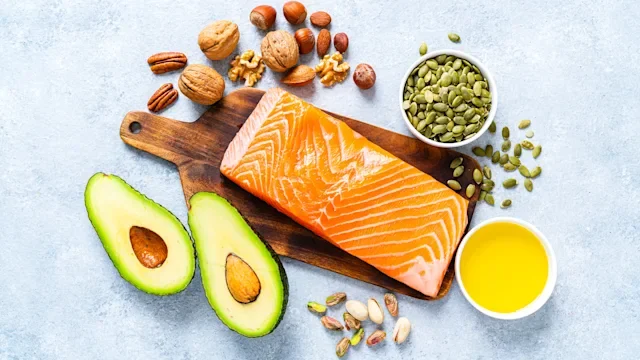Key takeaways:
THC is a main component in cannabis, the chemical that causes a “high.” THC may have some health benefits, but it also has risks.
Cannabis use can increase your blood pressure, heart rate, and the amount of oxygen your heart requires.
Recent research suggests cannabis use increases the risk of heart attack and stroke, even in young, healthy people.
Cannabis is more available and use is going up in the U.S. At the same time, cannabis is becoming more potent, with higher amounts of THC, the main component that gets you high. So, with these changes, it’s important to be aware of the health risks of using cannabis.
Most people are familiar with some risks linked with cannabis, like slower reaction time and less coordination. But many aren’t aware of how cannabis use can affect your heart health — particularly in young, healthy people.
At the federal level, cannabis is still in the most dangerous category of controlled substances. So, historically, restrictions on doing research with cannabis has limited experts’ understanding of its risks. But as more information emerges, the negative effects of cannabis on heart health are becoming clearer.
Here, we’ll look at the effects of THC on blood pressure, heart rate, and heart health in general.
What is THC?
THC (tetrahydrocannabinol) is the psychoactive chemical in the cannabis plant. In other words, it’s the chemical responsible for the “high.” The other main active part of cannabis is CBD (cannabidiol). CBD doesn’t cause a high. It has been shown to have some benefits for pain, anxiety, and insomnia.
Cannabis products have varying ratios of THC and CBD. They can be consumed in different forms, including:
Smoking
Vaping
Sprays
Topical creams
Edibles
How quickly the THC might be absorbed in your body depends on which formulation you use. There are some potential health benefits to cannabis use. But, importantly, there are also known risks and side effects.
Alcohol vs. THC — is one safer than the other? Our team reviews the evidence on how these substances can affect your health.
Cannabis can affect people differently. Learn about this and other FAQs on cannabis highs.
Yes, it’s possible to overdose on cannabis. It’s more likely with edibles, but it’s rarely fatal.
How does THC affect blood pressure and the heart?
Cannabis use — and specifically THC — can affect the heart in dangerous ways.
THC turns on the sympathetic nervous system. This is your “fight or flight” response. When this happens, it can:
Elevate your heart rate
Raise your blood pressure
Increase the amount of oxygen that your heart needs
Activate platelets (important for blood clotting), which may increase risk of heart attack or stroke
Read more like this
Explore these related articles, suggested for readers like you.
THC has also been linked to damaging the lining of your blood vessels (endothelial), as well as to how oxygen is transported in your blood.
What are the heart-related risks of cannabis and THC?
As these effects on heart health started coming to light, experts wondered about cannabis’s effects on young people. At the time, they believed that cannabis use wouldn’t put young adults at higher risk for heart problems — unless they also used tobacco or had other risk factors. Cigarette smoking is a known risk factor for cardiovascular disease. So it was difficult to separate the effects of cannabis from those of tobacco.
But recent research shows a greater risk of cardiovascular disease with cannabis use, regardless of age, tobacco use, or type of cannabis. In particular, recent studies have found that cannabis users may have a higher risk of heart attack and stroke.
Here’s a rundown of what the science says:
One study showed an increased risk of heart attack and stroke in people who use cannabis in any form (smoke, edibles, or vape). This link was present regardless of whether people also smoked tobacco cigarettes.
Another study used health record data to compare health events in people who used cannabis with those of nonusers. Both users and nonusers were under age 50. And they didn’t have any cardiovascular risk factors, such as high blood pressure, diabetes, or high cholesterol. But the people who used cannabis were much more likely to have a heart attack or stroke than the nonusers.
A large meta-analysis pooled data from 12 studies involving over 75 million people with an average age of 41. People who used cannabis were 50% more likely to have a heart attack than nonusers.
There’s more: In addition to heart attack and stroke risk, cannabis use is also linked to an increase in the rates of hospitalization. And another study found a higher rate of arrhythmias (irregular heart rhythm) in hospitalized cannabis users compared with nonusers.
To put it simply, THC does more than just raise your blood pressure: It also increases your risk for health events like arrhythmia, heart attack, and stroke.
Who is at higher risk of heart problems from using cannabis?
According to the research, heart problems can happen in anyone who uses cannabis. This risk seems to be higher with more frequent cannabis use.
And, because of these effects, it’s likely you may be at even greater risk if you have other medical conditions that affect the heart. Examples of these conditions include:
Heart disease
High blood pressure
Irregular heart rhythm
Diabetes
Can cannabis can also affect the heart medications you take?
As we said above, cannabis can directly affect how the heart works. But it can also interact with heart medications you take. Cannabis can increase or decrease levels of some medications. This can make them either too effective or not effective enough. Some examples of affected medications include:
Cholesterol medications called statins
Antiarrhythmic medications (such as amiodarone)
Can smoking cannabis lead to health problems, even if you’re young?
Yes. The research suggests there’s a greater risk for other health problems, in addition to the heart problems mentioned above. This is true if you’re young or don’t have risk factors.
Here are some of the other health risks from cannabis use:
Cannabis use can affect brain development. Anyone who’s young, pregnant, or nursing should avoid it for those reasons.
Smoking or vaping can damage the lungs and cause long-term respiratory problems such as chronic bronchitis.
The FDA has warned of the risk of lung injury from vitamin E acetate in cannabis products. THC and CBD products aren’t regulated or inspected. So, there’s a real risk of these products being contaminated with heavy metals, pesticides, or other chemicals.
The bottom line
Cannabis use is increasing in the U.S. and worldwide, and researchers are learning more about its health risks. Cannabis — and specifically THC — can have real and dangerous risks for your heart health. It can increase your risk of cardiovascular events like heart attack and stroke, regardless of your age or health.

Why trust our experts?


References
American College of Cardiology. (2023). Frequent marijuana use linked to heart disease.
Auer, R., et al. (2017). Lifetime marijuana use and subclinical atherosclerosis: the Coronary Artery Risk Development in Young Adults (CARDIA) study. Addiction.
Centers for Disease Control and Prevention. (2024). Health effects of cigarettes: Cardiovascular disease.
DeFilippis, E. M., et al. (2020). Marijuana use in patients with cardiovascular disease: JACC review topic of the week. Journal of the American College of Cardiology.
Desai, R., et al. (2018). Burden of arrhythmia in recreational marijuana users. International Journal of Cardiology.
Desai, R., et al. (2019). Rising trends in hospitalizations for cardiovascular events among young cannabis users (18–39 years) without other substance abuse. Medicina.
EurekAlert. (2025). Cannabis users face substantially higher risk of heart attack. American Association for the Advancement of Science.
Jeffers, A. M., et al. (2024). Association of cannabis use with cardiovascular outcomes among US adults. Journal of the American Heart Association.
Kamel, I., et al. (2025). Myocardial infarction and cardiovascular risks associated with cannabis use: A multicenter retrospective study. Journal of the American College of Cardiology.
Mattingly, D. T., et al. (2024). Prevalence of and trends in current cannabis use among US youth and adults, 2013–2022. Drug and Alcohol Dependence Reports.
National Cancer Institute. (n.d.). Sympathetic nervous system. National Institute of Health.
National Institute on Drug Abuse. (2024). Cannabis (marijuana). National Institute of Health.
Pacher, P., et al. (2017). Cardiovascular effects of marijuana and synthetic cannabinoids: The good, the bad, and the ugly. Nature Reviews Cardiology.
Page II, R. L., et al. (2020). Medical marijuana, recreational cannabis, and cardiovascular health: A scientific statement from the American Heart Association. Circulation.
Pratt, M., et al. (2019). Benefits and harms of medical cannabis: A scoping review of systematic reviews. Systematic Reviews.
U.S. Drug Enforcement Administration. (n.d.). Drug scheduling.
U.S. Food and Drug Administration. (2019). Tetrahydrocannabinol (THC)-containing vaping products: Vaping illnesses.
Weresa, J., et al. (2022). Why do marijuana and synthetic cannabimimetics induce acute myocardial infarction in healthy young people? Cells.


















